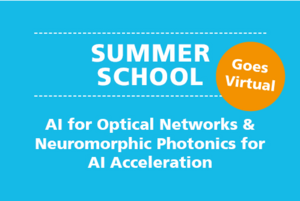
Die erste Ausgabe der „Summer School: AI for Optical Networks & Neuromorphic Photonics for AI Acceleration” des Fraunhofer HHI, findet vom 6. bis 9. September 2021 virtuell statt. Diese Summer School bietet eine Reihe von Tutorials, ausgewählten Vorträgen und Panels von den wichtigsten Expertinnen und Experten aus Wissenschaft und Industrie, um die aktuellen Herausforderungen bei der Nutzenmaximierung von Künstlicher Intelligenz (KI) und Maschinellem Lernen (ML) im Zusammenhang mit optischen Netzwerken anzugehen. Darüber hinaus werden die Vorteile der Photonik im Kontext von KI-Beschleunigungsaufgaben diskutiert.
Update: Die Veranstaltung wird virtuell abgehalten. Die bereits bezahlten Anmeldegebühren werden an alle registrierten Teilnehmerinnen und Teilnehmer zurückerstattet.
Die Veranstaltung ist in vier Tage gegliedert: In den ersten drei Tagen werden die Anwendungsfälle von KI/ML für optische Netzwerke behandelt, der vierte Tag konzentriert sich auf die Photonik für die KI-Beschleunigung. Die Veranstaltung findet auf Englisch statt.
Details zur Registrierung und zu weiteren wichtigen Daten finden Sie hier .
Einreichungsverfahren von Postern
Die Summer School akzeptiert eine begrenzte Anzahl von Poster-Anmeldungen. Bewerbungen für Poster müssen im IEEE Standard-Paper-Template an Dr. Behnam Shariati eingereicht werden. Die Proposals sollten nicht länger als zwei Seiten sein. Die Bewerberinnen und Bewerber werden bis zum 1. September 2021 über den Status Ihrer Einreichung informiert.
Einreichungsfrist: 23. August 2021
Weitere Informationen werden in Kürze auf der offiziellen Veranstaltungswebsite veröffentlicht.
Bei der „Summer School: AI for Optical Networks & Neuromorphic Photonics for AI Acceleration 2020” werden folgende Dozentinnen und Dozenten Vorträge halten:
Dozentinnen und Dozenten
Achim Autenrieth

ADVA Optical Networking – Director Advanced Technology
"SDN Control and Automation of Open and Disaggregated Optical Networks"
Achim Autenrieth is currently working as Director Advanced Technology at ADVA Optical Networking, where he is leading the research activities on networking technologies including SDN control and automation of disaggregated optical transport networks, and design and evaluation of multilayer networks. He received his Dipl.-Ing. and Dr.-Ing. degree in Electrical Engineering and Information Technology from the Munich University of Technology, Germany, in 1996 and 2003.
Before joining ADVA Optical Networking in June 2010, Achim was with Siemens AG and Nokia Siemens Networks, where he held the position of Head of BCS R&D Innovations. He is considered an expert in Multilayer Network Optimization and GLMPLS control plane technologies. Achim is a member of IEEE and VDE/ITG, he authored or co-authored more than 120 scientific publications and he served as technical program committee member of OFC (2018-2021), ECOC (2011-2017), DRCN, and RNDM.
Bert Jan Offrein

IBM Research Zurich - Manager Neuromorphic Devices and Systems
"Photonic Signal Processing for High Performance and Efficient Neuromorphic Computing"
Bert Offrein received his Ph.D. degree in nonlinear integrated optics from the University of Twente (NL) in 1994. He then joined IBM Research - Zurich and contributed to establishing and commercializing adaptive integrated optical technology for DWDM networks. From 2004 to 2016, Bert Offrein was managing the photonics group, addressing optical interconnects for computing systems. Since 2016, he is leading the neuromorphic devices and systems group, focussing on novel hardware for neural networks. Bert Offrein is a principal research staff member at IBM Research and the co-author of over 150 publications and the co-inventor of more than 35 patents.
Camille Delezoide
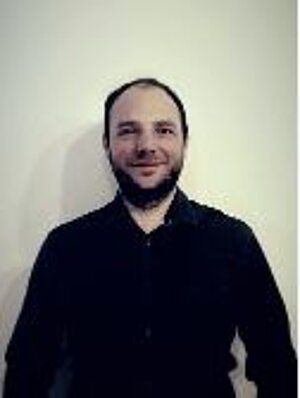
Nokia Bell Labs France - Research Engineer
"Low-Margin Optical Networks and Beyond"
Camille Delezoide received an engineer degree and M.S. in optics and photonics from Institut d’Optique Graduate School, Palaiseau, France, in 2007 and a Ph.D. from Ecole Normale Supérieure Paris-Saclay, Cachan, France, in 2012. He spent two years as a postdoctoral fellow at the Laboratoire de Photonique Quantique et Moléculaire (LPQM) in Cachan studying microresonator-based biosensing. He joined Alcatel–Lucent (now Nokia) Bell Labs as a research engineer in 2014. His current research interest consists in leveraging data science, automation and signal processing techniques to improve the performances of optical networks.
Fayçal Ait Aoudia
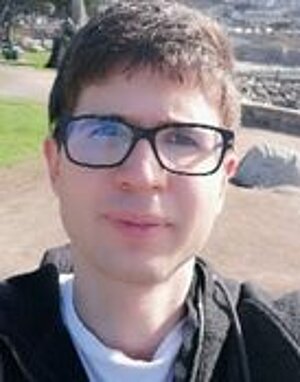
Nokia Bell Labs France - Research Engineer
"Deep End-to-End Learning of Communication Systems"
Fayçal Ait Aoudia received the M.Sc. degree in computer science engineering from the National Institute of Applied Sciences of Lyon (INSA Lyon) in 2014, and the Ph.D. degree in signal processing from the University of Rennes 1 in 2017. His Ph.D. work has focused on energy management and communication protocols’ design for autonomous wireless sensor networks. Since 2017, he has been a Researcher with Nokia Bell Labs, France, where he focuses on machine learning for wireless communications. He received the 2018 Nokia AI Innovation Award.
Mitsumasa Nakajima
NTT Device Technology Labs - Research Engineer
"On-Chip Photonic Reservoir Computing"
Mitsumasa Nakajima received the B.E. degree in applied physics from the Science University of Tokyo, Tokyo, Japan, in 2008, and the M.E. and Ph.D. degrees in material science from Tokyo Institute of Technology, Tokyo, in 2010 and 2015, respectively. He joined Nippon Telegraph and Telephone (NTT) Microsystem Integration Laboratories in 2010, where he was involved in the development of optical circuits for optical switch neuromorphic applications. He is currently with NTT Device Technology Laboratories, Atsugi, Japan. His research interests include optical circuit design and their application to information processing. He received the Young Engineer Award from the Institute of Electronics, Information and Communication Engineers (IEICE) of Japan in 2013. He is a member of the IEICE.
Oliver Holschke

Deutsche Telekom Innovation Laboratories - Project Manager & System Architect
"Quantum Communications Research at DT"
Oliver Holschke is a Project Manager and System Architect at Deutsche Telekom Innovation Laboratories, where Oliver creates and leads R&D projects in the field of AI and ML applications for communication networks, including proof-of-concept building and integration of new services into Deutsche Telekom operations.Before joining the AI team at T-Labs, Oliver spent 5 years as the Managing Director of “Benocs”, a strategic Deutsche Telekom spin-off, which specializes on integrated monitoring, analytics and optimization of large IP networks. Having built the company from the ground up, “Benocs” today serves traffic management and analytics solutions in four EU markets of Deutsche Telekom, including Germany.
Yvan Pointurier

Huawei Technologies, France - AI for optical networking Research team leader
"The Applications of AI for Optical Communication Networks"
Yvan Pointurier received the Ph.D. degree from the University of Virginia, Charlottesville, VA, USA, in 2006. He joined Huawei in 2020 to lead the AI for Optical Networking team. Dr. Pointurier spent 10 years at Alcatel-Lucent (now Nokia) Bell Labs, Nozay, France, as a Research Engineer and Manager, working on circuit and optical packet switched networks, with activities ranging from the physical layer to planning algorithms. He has authored or coauthored more than 20 European and U.S. patents and more than 100 technical papers, several of them top-scored. He received the Harm Dorren Commemoration Award at ECOC 2015, the Best Paper Award at the IEEE ICC in 2006 and an IEEE COMMUNICATION LETTERS Exemplary Reviewer Award from 2014 to 2016 (top 3% of the reviewers). He is an Associate Editor for the IEEE/OSA JOURNAL OF OPTICAL COMMUNICATIONS AND NETWORKING and a Technical Program Committee (TPC) member for OFC between 2019 and 2021; he served as the French coordinator for the CELTIC+ SENDATE-TANDEM project, a 36-month, 2200 person-month European project.
Åsa Ribbe
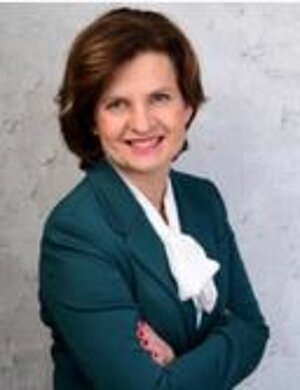
European Patent Office - Director
"How to Patent AI/ML Inventions in Europe"
Åsa Ribbe received her MSc in Engineering physics from Chalmers University of Technology, Gothenburg, Sweden. She has 22 years of experience as patent examiner in the field of optical communication at the European Patent Office (EPO) and is currently Director of Patent Examination at the EPO in the field of software engineering. Furthermore, she is an expert in the patenting of AI and software related inventions.
Luca Pesando

Telecom Italia – Chairman of ETSI’s ISG F5G
“AI Application in Networks and Standards: a Difficult but Needed Relationship”
Luca Pesando has more than twenty-five years of experience in ICT with Telecom Italia. In the company he is standards manager since 2006. At present Luca is Board Member of ETSI and chairman of ETSI’s ISG F5G. He is also co-chairman of WP1 in SG13 of ITU-T, and Council Member in the Italian national standards body CEI.
Antonio Hurtado

University of Strathclyde - Senior Lecturer
"Neuromorphic Photonics using Optical Spiking Neurons"
Dr. Antonio Hurtado is a Senior Lecturer at the University of Strathclyde’s Institute of Photonics after being appointed to a Strathclyde Chancellor’s Fellowship. He obtained his PhD degree from the Universidad Politécnica Madrid (UPM, Spain). He has developed an international career in photonics research, working in the UK (Universities of Strathclyde and Essex), Spain (UPM), and in the USA (University of New Mexico, UNM). He has been involved in diverse projects funded by EU, UK national and US funding bodies. Notably, he was awarded two Marie Sklodowska-Curie Fellowships by the European Commission to work at the University of Essex and at UNM’s Centre for High Technology Materials. At Strathclyde, he leads the ‘Neuromorphic Nanophotonics’ research group and currently manages research programmes funded by the USA’s Office of Naval Research Global (project ‘BrainLaser’) and the EU H2020 FET Open Programme (project ‘ChipAI’) aiming at using photonic technologies for novel brain-inspired computing and Artificial Intelligence (AI) platforms.
Bhavin J. Shastri
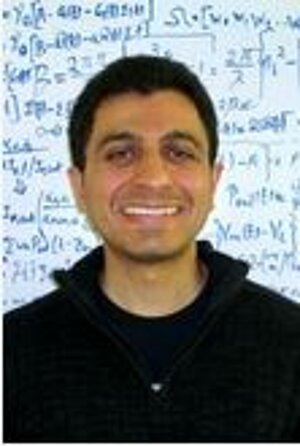
Queen's University - Assistant Professor
"Neuromorphic Photonics for AI Acceleration"
Bhavin J. Shastri is an Assistant Professor of Engineering Physics at Queen's University, Canada. He earned the Honours B.Eng. (with distinction), M.Eng., and Ph.D. degrees in electrical engineering (photonics) from McGill University, Canada, in 2005, 2007, and 2012, respectively. He was an NSERC and Banting Postdoctoral Fellow (2012-2016) and an Associate Research Scholar (2016-2018) at Princeton University. With research interests in silicon photonics, photonic integrated circuits, neuromorphic computing, and machine learning, he has published more than 50 journal articles and 70 conference proceeding, 4 book chapters, and given over 35 invited talks and lectures including 2 Keynotes. He is a co-author of the book, Neuromorphic Photonics (Taylor & Francis, CRC Press, 2017).Dr. Shastri is a Senior Member of the IEEE, recipient of the 2014 Banting Postdoctoral Fellowship from the Government of Canada, the 2012 D. W. Ambridge Prize for the top graduating Ph.D. student, an IEEE Photonics Society 2011 Graduate Student Fellowship, a 2011 NSERC Postdoctoral Fellowship, a 2011 SPIE Scholarship in Optics and Photonics, a 2008 NSERC Alexander Graham Bell Canada Graduate Scholarship, including the Best Student Paper Awards at the 2014 IEEE Photonics Conference, 2010 IEEE Midwest Symposium on Circuits and Systems, the 2004 IEEE Computer Society Lance Stafford Larson Outstanding Student Award, and the 2003 IEEE Canada Life Member Award.
Christian Häger

Chalmers University of Technology - Postdoctoral Researcher
"Model-Based Machine Learning for Physical-Layer Communication over Optical Fiber"
Christian Häger received the Dipl.-Ing. degree (MSc equivalent) in electrical engineering from Ulm University, Germany, in 2011 and the PhD degree in communication theory from Chalmers University of Technology, Sweden, in 2016. Between 2016 and 2019, he was a postdoctoral researcher within the "Duke Rhodes Information Initiative at Duke (iiD)" at Duke University, USA. Since 2017, he is also a postdoctoral researcher at Chalmers University of Technology. His research interests include fiber-optical communications, machine learning, and modern coding theory. He received the Marie Sklodowska-Curie Global Fellowship from the European Commission in 2017.
Christoph Lange
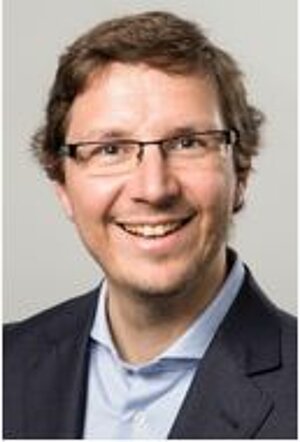
Fraunhofer Institute for Applied Information Technology FIT - Head of Department "Knowledge Pipelines"
and RWTH Aachen University - Senior Researcher
"International Data Spaces: Architecture and Use Cases"
Christoph Lange is the head of the Knowledge Pipelines department at the Fraunhofer Institute for Applied Information Technology FIT and a senior researcher with the chair for Information Systems at RWTH Aachen University, Germany. He has been working with Fraunhofer since 2014. In 2011, he received a Ph.D. from Jacobs University Bremen, Germany, for enabling collaboration on semiformal mathematical knowledge by semantic web integration. His research is broadly concerned with representing expressive knowledge in complex domains in a formal but scalable way using linked (open) data, which enables and facilitates machine support with retrieval, analysis, quality assessment, publishing, collaborative authoring, etc.; results have been published in high-profile international journals and conferences (cf. his Google Scholar profile). Application domains range from information integration within enterprises and across enterprise boundaries to research infrastructures. The former has been subject of contractual R&D for leading German and international enterprises in the automotive and other sectors. On semantic web and intelligent computer mathematics topics, Christoph has organised numerous conferences, challenges, trainings and workshops, co-supervised 10 PhD students, taught lectures and coordinated lab and seminar classes, served as an expert for several international funding bodies and contributed to international OMG and W3C standards.
Dan Kilper

Trinity College Dublin – Director at CONNECT Centre
"Performance Monitoring in Open Optical Networks and Data Collection Frameworks"
Dr. Dan Kilper is the Director of the Center for Integrated Access Networks and a research professor in the College of Optical Sciences at the University of Arizona, Tucson. He holds a joint appointment in Electrical and Computer Engineering at the University of Arizona and adjunct faculty positions at the Columbia University Data Science Institute and the College of Engineering, Trinity College Dublin. He is also a faculty appointee at NIST Information Technology Lab. He received a PhD in Physics from the University of Michigan in 1996. From 2000-2013, he was a member of technical staff at Bell Labs. Within both academia and industry, he has made contributions in the areas of communication devices and networks primarily spanning energy efficient communication networks, optical performance monitoring, and dynamic optical networks. He is a senior member of IEEE and is an associate editor for the IEEE Transactions on Green Communications and Networking and a steering committee member for the IEEE Sustainable ICT Initiative. He has served in leadership positions in multi-university/industry consortia that include the Center for Telecommunications Value Chain Research (CTVR), Bell labs Ireland, Center for Energy Efficient Telecommunications (CEET), University of Melbourne, Australia, and the GreenTouch Consortium. He co-founded Palo Verde Networks, a startup developing optical technologies designed for the next generation, AI controlled software-defined optical networks. He served as general chair of IEEE Green Communications Conference 2014 & 2015 and technical program committee co-chair for IEEE/OSA Photonics in Switching 2013 and IEEE/OSA Photonics in Switching and Computing 2019. He has organized workshops and served on technical program committees at numerous international conferences including CLEO/IQEC, OFC, INFOCOM, ICC, Globecom, ICTON, IFIP, CLEO Europe, and COIN/ACOFT. His work has been recognized with the NIST Communication Technology Lab Innovator Award, the Bell Labs President's Gold Medal Award and he served on the Bell Labs President’s Advisory Council on Research. He holds thirteen patents and authored six book chapters and more than one hundred sixty peer-reviewed publications.
Laurent Schmalen
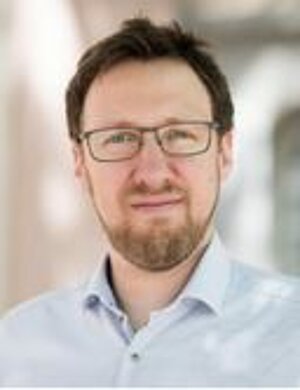
Karlsruhe Institute of Technology (KIT), Communications Engineering Lab - Professor
"End-to-end Modelling and Optimization of Optical Communication Systems using Deep Learning"
Laurent Schmalen received both the Dipl.-Ing. and Dr.-Ing. (Ph.D.) degrees from RWTH Aachen University, Germany, in 2005 and 2011, respectively. Between 2011 and 2016, he was a Research Engineer at Alcatel-Lucent Bell Labs in Stuttgart, Germany, where he worked on forward error correction schemes for high-speed optical communications. Between 2016 and 2019, he was the Department Head in Nokia Bell Labs in Stuttgart. He served as a Guest Lecturer at the University of Stuttgart between 2014 and 2019, teaching a graduate-level course on modern error correction techniques. Since 2019, he has been a Full Professor with the Karlsruhe Institute of Technology, Karlsruhe, Germany, where he heads the communications engineering lab. Among others, he received the E-Plus Award and the Friedrich-Wilhelm Award for his Ph.D. dissertation, the Bell Labs President Award and is a recipient of the Best Student Paper Award at the IEEE Signal Processing Systems, the Best Paper Award at the 2010 ITG conference on speech communications, and the 2016 Journal of Lightwave Technology Best Paper Award. Additionally, he received the 2014 IEEE Transactions of Communications Exemplary Reviewer Award and the 2018 Journal of Lightwave Technology Outstanding Reviewer recognition.
Marija Furdek

Chalmers University of Technology, Gothenburg, Sweden - Assistant Professor
"AI/ML for Security Management in Optical Networks"
Dr. Furdek is an assistant professor at the Department of Electrical Engineering at Chalmers, Gothenburg, Sweden. Her research focuses on the development of optimized, cognitive and autonomous optical communication networks with a focus on physical-layer security and resilience to a wide range of faults.As a principal investigator, task leader and researcher, Marija has participated in several national and international research projects with a wide network of collaborators from the industry and academia. She is currently leading the project “Safeguarding Optical Communication Networks from Cyber-Security Attacks”, funded by the Swedish Research Council. She has co-authored more than 90 scientific publications in international journals and conferences, 5 of which received best paper awards, and has given more than 20 invited talks at international conferences.Marija is an editor of the Photonic Network Communications journal, and a Guest Editor of the IEEE/OSA Journal of Optical Communications and Networking, and IEEE/OSA Journal of Lightwave Technology. She was a General Chair of the Photonic Networks and Devices conference, a part of the OSA Advanced Photonics Congress 2016-2019. She regularly serves as an external expert evaluator of European Commission-funded projects. She is a Senior Member of IEEE and OSA.
Bernhard Spinnler
>Infinera R&D
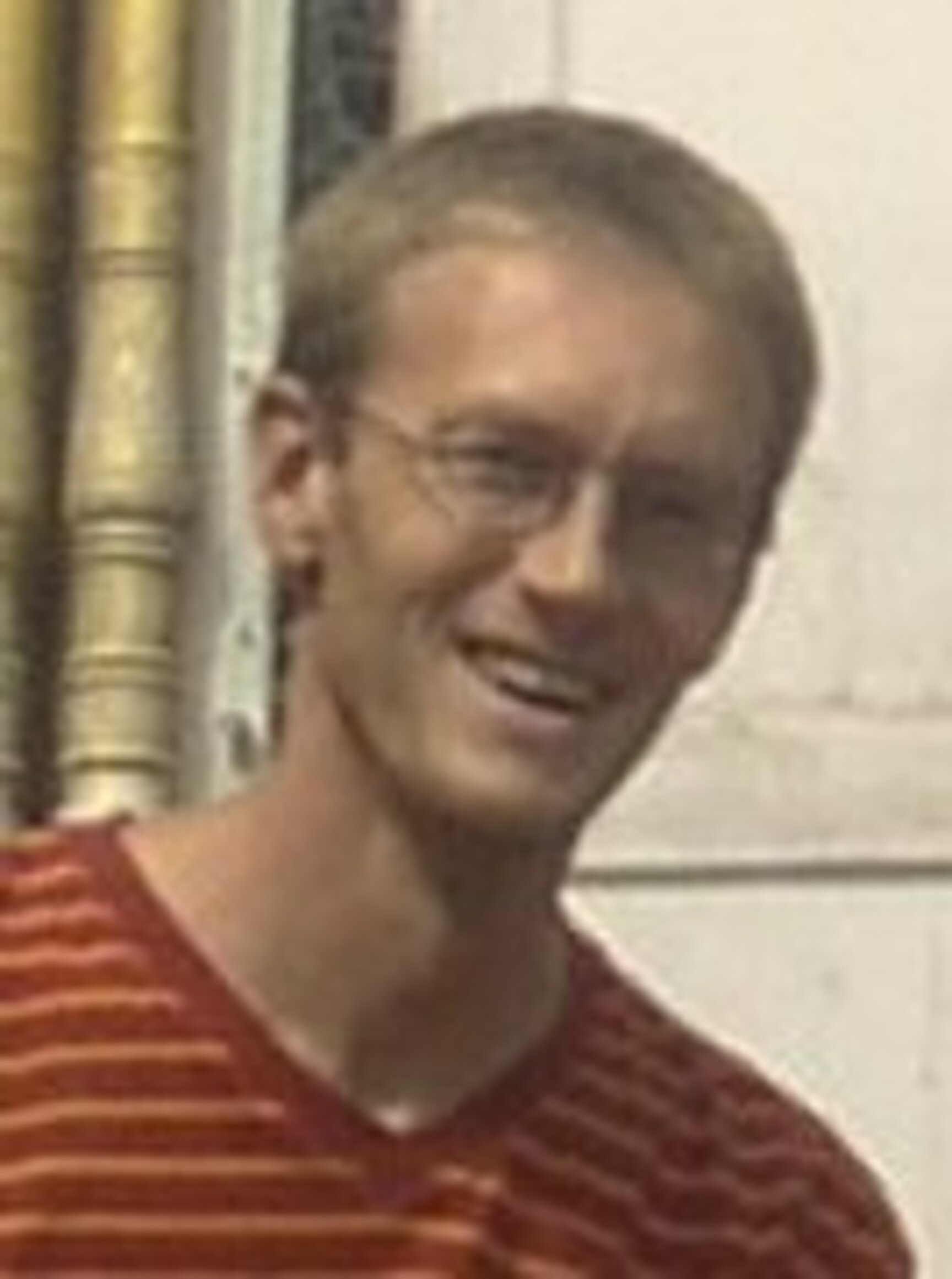
Bernhard Spinnler received the Dipl.-Ing. degree in communications engineering and the Dr.-Ing. degree from the University of Erlangen-Nürnberg, Germany, in 1994 and 1997, resp. Since 1997, he worked on low-complexity modem design of wireless radio relay systems at Siemens AG, Information and Communication Networks. In 2002, he joined the optical networks group of Siemens Corporate Technology which became Nokia Siemens Networks and later Coriant. He is now working for Infinera on design and modelling of robust, tolerant, and automated optical communications systems. His interests focus on advanced digital signal processing and coding, network automation, artificial intelligence and machine learning.